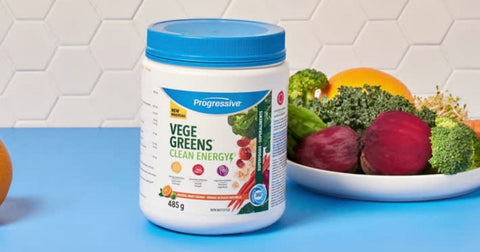
Summer is here and Canada has defrosted! It's time to halt the imports and enjoy the fruit of our country. Eating locally means different things to different people, but for this article let's define local as ''food grown within 100 miles-ish of where it's being consumed.'' Why should we eat food from a farm nearby versus the other end of the country or world? Aside from the marketing aspect that makes us feel cool, eating locally actually has health, environmental, and economical benefits.
Health benefits of eating locally
We should give fruits and vegetables a chance to fully ripen before we pick them. This way we can get all the nutrients mother nature has to offer. When we pick produce before they are ripe, we are picking less nutrient-dense fruits. Once they are picked, the clock starts with how long they hold onto their nutrients. The ideal situation is that we are picking and consuming delicious and nutritious fruit within the shortest time possible.

Environmental benefits of eating locally
Your ecological footprint is highly influenced by what you eat. The farther your food travels from its place of origin, the more CO2 emissions it produces. China is the number one producer of apples , but they have to travel a long way to get to Canada, creating a lot of unnecessary CO2 emissions (especially when Canada's apples are plentiful and climbing trees is endless fun). And we're supposed to have one of those a day!
Economical benefits of eating locally
Supporting our local and foreign condo developers is definitely nice, but if we want to continue to be able to enjoy local food, let's support our local farmers. So head to a farmers market, an actual farm, or check for your ''local produce'' signs at grocery stores.
And now for the lists that you've all been waiting for...the in-season produce you can enjoy in your province this summer season (from east to west):
Atlantic Canada
Fruits: Apples, blueberries, cantaloupe, cherries, raspberries, strawberries, and then in early fall: currants, gooseberries, peaches, pears, and plums too.
Vegetables: Asparagus, beans, beets, bok choy, broccoli, Brussels sprouts, cabbage, carrots, cauliflower, celery, chard, corn, cucumber, eggplant, garlic, kale, lettuce, mushrooms, onions, peas, peppers, potatoes, radishes, rapini, shallots, spinach, turnips, zucchini.
Quebec
Fruits: Apples, blueberries, cantaloupe, cape gooseberries, cherries, grapes, melons, peaches, pears, plums, raspberries, rhubarb, strawberries.
Vegetables: Asparagus, beans, beets, broccoli, Brussels sprouts, cabbage, carrots, cauliflower, celery, corn, cucumber, eggplant, lettuce, mushrooms, onions, peppers, potatoes, radishes, spinach, squash, Swiss chard, tomatoes.
Ontario
Fruits: Apricots, blueberries, cantaloupe, cherries, currants, gooseberries, grapes, nectarines, peaches, pears, plums, raspberries, Saskatoon berries, strawberries, watermelon.
Vegetables: Artichoke, Asian Greens, beans, beets, bok choy, broccoli, Brussels sprouts, cabbage, carrots, cauliflower, celery, chard, corn, cucumber, eggplant, garlic, kale, leeks, lettuce, mushrooms, onions, peas, peppers, potatoes, radishes, rapini, rutabaga, shallots, spinach, squash, sweet potatoes, tomatoes (''technically'' a fruit, but shouldn't be) turnips, zucchini.
Western Canada
Fruits: Apples, apricots, blueberries, cantaloupe, cherries, currants, gooseberries, nectarines, peaches, pears, plums, raspberries, strawberries, watermelon.
Vegetables: Artichoke, Asian Greens, beans, beets, bok choy, broccoli, cabbage, carrots, cauliflower, celery, chard, corn, cucumber, eggplant, fennel, garlic, kale, leeks, lettuce, mushrooms, onions, peas, peppers, potatoes, pumpkins, radishes, rapini, rutabaga, shallots, spinach, squash, sweet potatoes, tomatoes (''technically'' a fruit, but shouldn't be) turnips, zucchini.
Getting your nutrients from local food sources is the best way to go, but always supplement nutritional gaps with foods or supplements.




